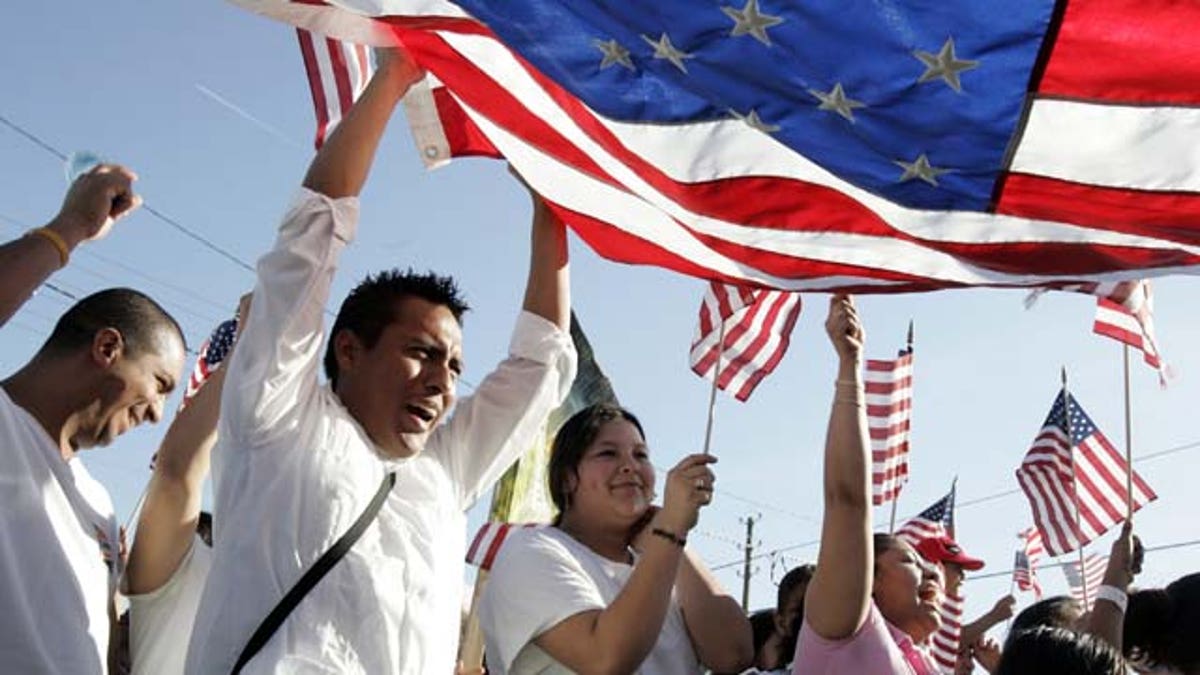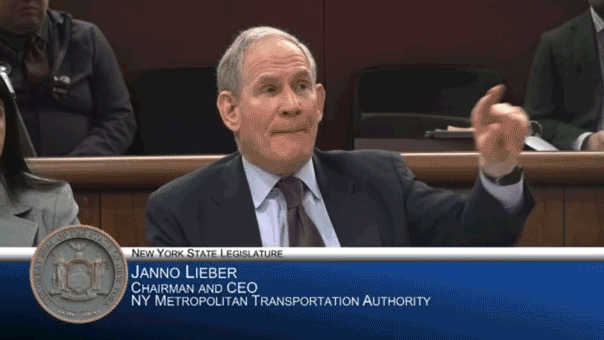
(ap)
The debate over how best to represent Nevada's Latinos -- which now account for one-quarter of the state population -- has led both the state GOP and Democrats to adopt unexpected positions regarding the creation of Latino majority districts to help facilitate the election of Latino candidates to Congress. The state GOP favors Latino majority districts. The Democrats oppose them.
In a public hearing on voter districts Monday, Republicans advocated creating boundaries that would give Hispanics a powerful voting bloc. Democrats demanded that the Hispanic vote be splintered across the state to ensure broad representation.
The debate is about more than just the political might of Nevada's Hispanics. If Democrats prevail, they will likely have the numbers to win three of Nevada's four House seats next year. If Republicans win, the fight will be even, with both political parties getting two House districts crammed with voters sympathetic to their policies.
The state party positions are something of a reversal in roles regarding support for so-called super-majority districts. After the passage of the Voting Rights Act, super-majority voting districts were mandated in certain states as a tool to increase the number of African-American elected officials.
The two parties have battled over the issue in Nevada for months, delaying the state's once-in-a-decade process of drawing new voter boundaries and stalling the start of the 2012 state elections.
Democrats argue that Hispanics come from diverse backgrounds and do not constitute a voting bloc under federal law. They also claim Hispanic voters have not been disenfranchised because the white majority has elected Hispanic candidates to statewide office. Gov. Brian Sandoval is Hispanic, and so are a handful of state and local lawmakers.
"Nevada is not Texas, Mississippi or Alabama," argued Kevin Hamilton, a Washington, D.C.-based lawyer representing Nevada Democrats, during the hearing. "White voters in Nevada vote for Hispanics and Hispanic-preferred candidates all the time."
But Republicans counter that Hispanics are a cohesive community because those voters share history and socioeconomics characteristics. They argue that the voting districts must reflect Hispanics' record growth over the last decade. Hispanics made up more than 26 percent of all Nevadans in 2010, up from 19 percent in 2000.
"We should have the opportunity to elect the candidate of our choice," said Alex Garza, a Hispanic Republican activist. Carson City District Judge James Russell ordered the public hearing in Las Vegas and a second hearing in Carson City Tuesday after the Nevada Legislature abandoned its efforts to create the new voter maps.
The state Constitution requires that the Legislature create new voter boundaries every decade based on U.S. Census data, but lawmakers punted the process to the state judicial branch after Sandoval twice vetoed plans passed by the Democrat-controlled state Senate and Assembly.
A three-member court-appointed panel is overseeing the public hearings and is expected to start drawing new voter maps this week.
The meetings come amid a challenge from Democratic Secretary of State Ross Miller, who wants the Nevada Supreme Court to decide how the new districts should be drawn. The high court will hear arguments on the case on Nov. 14, only two days before Russell has said he will approve new voter maps. The Nevada Supreme Court has said it will decide whether any judge can resolve the redistricting matter given that the state constitution requires lawmakers to complete the task.
Thomas Brunell, a political science professor at the University of Texas at Dallas retained by the state Republican party, said the plans passed by lawmakers "suffered from substantial amounts of partisan bias that favored the Democrats in both chambers of the Legislature."
"In order to have minorities elected to Congress, we have to have these (minority-majority) districts," he said. "We are not post-racial yet."
Nevada Hispanics tend to vote Democrat, and their stance on the new voter maps appears to largely depend on their political identification. For example, state Sen. Ruben Kihuen, a Democrat hoping to become the first Hispanic from Nevada elected to the House, voted with his party in the Legislature to pass both Democratic-backed maps, even though his odds of winning could be more favorable in a Hispanic minority-majority district.
Vicenta Montoya, leader of the Si Se Puede Latino Democratic Caucus in Las Vegas, said GOP leaders want to pack Hispanics into a single congressional district not because they want to help Latino voters, but because doing so would help more Republicans get elected statewide.
Nevada will elect a fourth House member next year for the first time, partly because of the state's swelling Hispanic population.
This story is based on the Associated Press.
Follow us on twitter.com/foxnewslatino
Like us at facebook.com/foxnewslatino











































